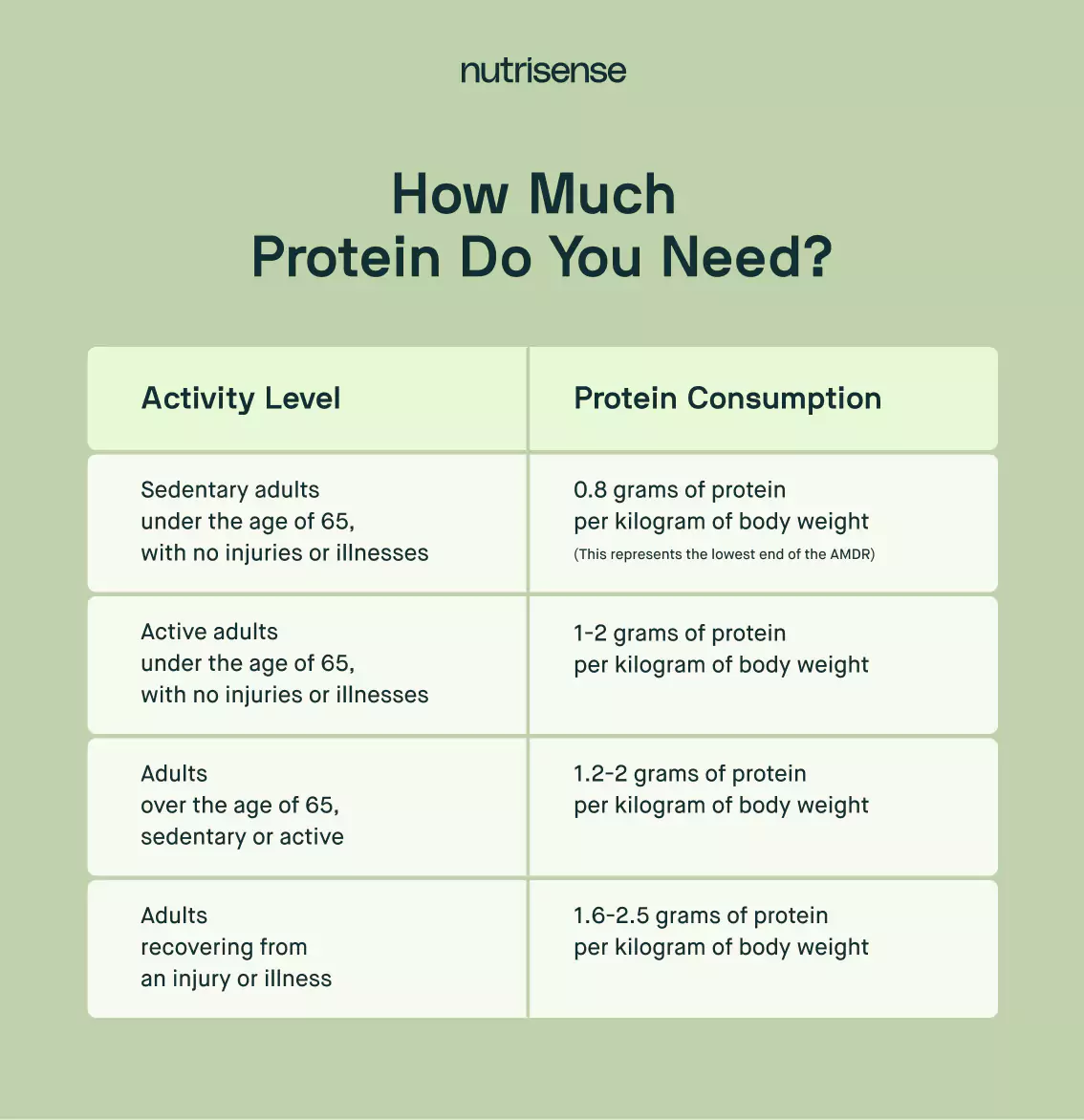Can You Change Your Metabolic Age?

Key Takeaways
Yes, you can lower your metabolic age by improving your basal metabolic rate (BMR). This wellness metric compares your body's calorie-burning efficiency to the average for your chronological age. You can influence it through targeted habits like building muscle, managing stress, and optimizing your diet.
Highlights:
- Metabolic age is a fitness and wellness concept, not a formal medical diagnosis.
- Use the BMR calculator in this article to get a baseline estimate of your current metabolic rate.
- The Nutrisense program includes dietitian support for personalized guidance, and video calls may be covered by insurance.
What is Metabolic Age?
You may be familiar with terms like metabolism and even metabolic health. But have you ever heard of metabolic age?
Your metabolic age reflects the state of your overall metabolic health and function. This number is calculated by comparing how many calories your body burns at rest compared to other people your age, and some research shows it can help detect metabolic health issues.
But there is much more to the term ‘metabolic age’ than a calculation. It’s also important to consider other aspects; for example, how important is this measurement to your overall health, especially if you want to improve your metabolic health? What factors influence your metabolic age? And how can metabolic age be changed?
In this article, we'll explore exactly what your metabolic age says about your overall metabolic health and how you can improve it with healthy habits. Plus, don’t miss the handy BMR calculator our health team added to help calculate your own.
How Does Your Metabolism Work?

Your metabolism refers to every chemical reaction your body carries out to complete bodily functions and keep you alive. Some of these functions include things like energy conversion, blood circulation, food digestion, cognitive function, hormone regulation, and waste elimination.
To complete all of these processes, the body burns a certain number of calories to transform food into energy, and this is measured by basal metabolic rate (BMR). Your BMR is used to measure your body's daily energy expenditure, and this rate can be influenced by factors such as age, fat mass, and leptin in the body.
TDEE and REE
To consider all the other daily activities, such as walking, eating, and exercising, a measurement called total daily energy expenditure (TDEE) is calculated. Your TDEE factors in your basal metabolic rate (BMR) and your daily activity to determine how many calories you burn daily with all activities.
How are Metabolic Rate and Metabolic Age Linked?

As we mentioned, basal metabolic rate (BMR) estimates the number of calories your body burns daily simply by keeping itself alive. This number is usually similar to your resting energy expenditure (REE) or the number of calories burned while you rest.
Your metabolic age is calculated using your BMR. This number is then compared to the average BMR for people of the same chronological age (your actual age).
Age-Related Changes
Research indicates that as you age, your BMR decreases by 0.75 percent annually, coupled with a 1 percent increase in body fat per year after reaching 40. But, increased metabolic age has been found to predict metabolic syndrome and other adverse health effects in some people.
How Do You Determine Metabolic Age?
So, how do you calculate your metabolic age? To do so manually, you'll first need to know your basal metabolism.
When Your Body Feels Older Than You Are
You step off the new smart scale, and the number stares back at you: metabolic age 58. But you’re only 48. You’ve been consistent with your workouts and mindful of your meals, yet progress feels slow, and your energy does not feel the same. It feels like you’re doing all the right things, but your body isn’t responding the way you expect, leaving you wondering what you’re missing.
The common formula for these measurements takes your height, body weight, sex, and age into account. The concept of metabolic age suggests that a value that is the same or younger than your real age indicates better metabolic health.
Try Our BMR Calculator
Start by determining your basal metabolic rate here:

If you want to calculate your BMR manually, here’s a simple formula you can use:
- For men: BMR = (4.536 × weight in pounds) + (15.88 × height in inches) − (5 × age) + 5
- For women: BMR = (4.536 × weight in pounds) + (15.88 × height in inches) − (5 × age) − 161
Once you have estimated your approximate BMR, you can use it to determine your metabolic age. The formula for metabolic age is similar to that of BMR. This number will be lower if your BMR is lower than the average BMR for your age group.
More Accurate Metabolism Methods
It's important to acknowledge that certain studies have identified potential errors in these calculations ranging from 10 to 35 percent. So, don’t view a higher metabolic age as an immediate cause for alarm. Additionally, your lean body mass matters in determining your BMR and should consistently be considered.
If you're looking for a more accurate measurement of your metabolism, you may want to consider undergoing metabolic testing, usually conducted in a clinical environment. One common approach involves a five-day diet analysis to establish your average calorie consumption. Furthermore, your resting carbon dioxide and oxygen levels can be measured to determine your metabolic rate accurately.
Test Limitations
Still, the precision of these tests is not flawless since they don't consider your body size (like waist circumference, for example), fitness and energy levels, possible underlying health conditions, and other lifestyle factors. Additionally, some people naturally possess a faster or slower metabolism than others.
How Can You Change Your Metabolic Age?

Because your metabolic age is based on your BMR, to change or improve your metabolic age, you’ll want to focus on boosting your BMR. Here are some effective ways to do that.
Muscle-Building Workouts
Building muscle is one key factor in boosting your metabolic rate. You may already know this if you've read our other fitness blogs. Strength training, weight lifting, and other resistance physical activities can be very effective at building lean muscle mass and improving body composition.
Being physically active and lifting weights increases insulin sensitivity and also promotes a healthy lifestyle.
Along with that, increased muscle mass and more physical activity can help to manage or maintain your weight. Here are examples of muscle-building and resistance-training exercises to add to your routine:
- Squats
- Deadlifts
- Push-ups and pull-ups
- Lunges
- Shoulder press
- Chest press
Eat More Protein
Your body needs adequate amounts of essential amino acids from your diet to help build muscle. If you're not getting enough protein, not only is it much harder to increase muscle mass, but you may also lose muscle, which can slow down your metabolic rate.
Consuming adequate protein, especially when doing strength training, can be beneficial. For adequate protein intake, here's what the research recommends:

Complete protein sources such as pasture-raised poultry and eggs, wild-caught seafood, Greek yogurt, tofu, minimally processed red meats, and other whole food sources are great ways to boost your intake.
These guidelines can be beneficial for individuals trying to boost their protein intake. However, protein needs can vary based on each person's individual health needs and activity level. Discuss your protein intake with your dietitian or nutritionist before making any significant dietary changes.
Manage Stress
Stress is a common culprit for weight loss and obesity. Excess stress can cause your body to hold onto fat, lead to weight gain, and even hinder muscle-building efforts.
How Stress Affects Metabolism
Research has found that cortisol, the stress hormone, is associated with increased abdominal fat (and overall body fat). Stress, over time, can also contribute to inflammation.
While acute inflammation is helpful in muscle building, chronic inflammation can prevent muscle growth over time. Reducing chronic stress can benefit metabolism by reducing inflammation, improving insulin sensitivity, and reducing blood pressure.
Stress Reduction Habits
Here are some tips to reduce stress:
- Create a daily routine that works for you
- Journal to release your emotions and energy
- Exercise to release any pent-up stress
- Practice mindfulness or meditation
- Get more movement throughout the day
When it comes to exercise, registered dietitian Amanda Donahue, MS, RD, CD, explains, “Make sure to consider intensity levels of exercise that’s best suited to you in the moment. If you’re overly stressed, for example, something lower intensity may be better for internal and physical stress versus a high-intensity workout like HIITs.” Working with a specialist like a registered dietitian can help you figure out the perfect fit for your body.
Improve Insulin Sensitivity

Insulin signals our cells to let glucose in to be used for energy. But if your body isn't responding to insulin, glucose levels can remain elevated. Over time, chronically high glucose, or hyperglycemia, can lead to poor metabolic health and even diabetes.
One way to reduce this negative impact is to optimize your carbohydrate consumption. Working with a dietitian to determine the amount of carbohydrates right for you and your activity levels can be helpful.
Additional tips to improve insulin sensitivity include:
Reduce Inflammation
Chronic inflammation can contribute to insulin resistance and poor metabolic health. To combat this, you can include anti-inflammatory, antioxidant-rich foods and ensure enough sleep, as a lack of sleep can increase insulin resistance.
Too much sugar can increase your risk of inflammation. By reducing sugary drinks, sweets, and processed foods, you can lower your overall inflammation.
Reducing stress through meditation, mindfulness, and other practices may also be beneficial. You can also try limiting your time spent in polluted areas and reducing exposure to obesogens.
Get More Sunshine
Spending some time in the sun may help improve insulin sensitivity. Studies found that getting an adequate amount of bright sunshine was linked to reduced insulin resistance and the risk of developing cardiovascular disease.
Optimize Your Diet

Consume plenty of insulin-sensitivity-boosting nutrients such as magnesium, fiber, protein, and cruciferous vegetables.
Magnesium is found in nutritious foods such as leafy greens, nuts, and seeds. Pasture-raised eggs and poultry are sources of protein rich in amino acids like L-carnitine, taurine, and L-arginine.
Stay Active
Along with boosting muscle tissue, regular exercise can also help improve insulin sensitivity. A large body of research has shown that aerobic exercise increases insulin sensitivity. Plus, this can also help prevent metabolic slowdown, improve cardiovascular health, and help you avoid future health problems.
Find the right Nutrisense programto turn insight into progress.
Learn More About Your Metabolism with Nutrisense
Have you tried calculating your metabolic age? While you should take the answer with a grain of salt, there's a better way to focus on your overall well-being—working 1:1 with an expert and using a continuous glucose monitor (CGM) to measure your blood glucose levels.
With the Nutrisense program, you learn more than just your blood glucose levels. Our credentialed nutritionists and dietitians work 1:1 with you to answer questions and offer guidance on making better dietary habits and lifestyle choices.
Don't wait to start taking control of your metabolic health. Take our quiz today to see how Nutrisense can help you reach your health goals.
FAQs About Metabolic Age And The Nutrisense Program
Q1. Does Nutrisense calculate or display metabolic age?
A1. Nutrisense does not display a metabolic age score. The app centers on glucose patterns from a biosensor and structured experiments guided by a registered dietitian. You can log meals, activity, sleep, and notes, then compare periods to see what fits your goals. If you track BMR or TDEE elsewhere, your nutritionist can help translate that into practical steps.
Source: How it works
Q2. How can CGM data help me adjust habits that may influence metabolic age over time?
A2. CGM data shows how your meals, activity, stress, and sleep relate to your glucose throughout the day and night. With a registered dietitian, you can test changes like meal timing, macronutrient balance, pre- or post-meal walks, and recovery practices. The app helps you log experiments and review trends so you can adjust gradually with clear feedback.
Source: How it works
Q3. How long should I wear sensors to see meaningful trends linked to metabolism?
A3. For most people, several weeks of data is useful to spot patterns across meals, weekdays, and weekends, training phases, and travel. Nutrisense ships two sensors per month, and you can apply them at your own pace. If you need a break, you can pause your account in 30-day increments based on your plan.
Source: CGM Plans
Q4. What do Nutrisense sensors measure, and is the data 24/7?
A4. Nutrisense uses glucose biosensors that measure glucose in interstitial fluid, the fluid between cells. Readings provide a 24/7 view of trends so you can review responses to food, activity, stress, and sleep. Sensors are waterproof up to 8 feet. Avoid extreme temperatures to help maintain performance.
Source: What is a CGM?
Q5. Can I use Nutrisense if I already have a compatible sensor?
A5. Yes. With a Nutrisense App membership, you can use the Bring Your Own Sensor option with select compatible sensors and access analytics in the app. You can add video calls with a registered dietitian if desired. Pricing is $19.99 per month or $199 per year, billed through Nutrisense.
Source: Bring Your Own Sensor
Go Beyond Glucose Data with Nutrisense
Your glucose can significantly impact how your body feels and functions. That’s why stable levels are an important factor in supporting overall wellbeing. But viewing glucose isn't enough. Nutrisense, you’ll be able to learn how to use your body's data to make informed lifestyle choices that support healthy living.
One-to-one coaching
Sign up to access insurance-covered video calls to work with a glucose expert: a personal registered dietitian or certified nutritionist who will help tailor your lifestyle and diet to your goals.
Monitor and measure what matters
With the Nutrisense CGM Program, you can monitor your glucose with health tech like glucose biosensors and continuous glucose monitor (CGM)s, and analyze the trends over time with the Nutrisense App. This will help you make the most informed choices about the foods you consume and their impact on your health.
Find your best fit
Ready to take the first step? Start with our quiz to find the right Nutrisense program to help you take control.
Go Beyond Glucose Data with Nutrisense
Have you tried calculating your metabolic age? While you should take the answer with a grain of salt, there's a better way to focus on your overall well-being.
Get 1:1 Guidance That Fits Your Life
Sign up to access insurance-covered video calls with a glucose expert: a personal registered dietitian or certified nutritionist who will help tailor your lifestyle and diet to your goals.
Learn From Your 24/7 Glucose Patterns
With the Nutrisense program, you learn more than just your glucose levels. You can monitor your glucose with health tech like glucose biosensors and continuous glucose monitors (CGMs), and analyze the trends over time with the Nutrisense App. This can help you make informed choices about meals and routines. Individual results may vary.
Ready to Get Started?
Don't wait to start taking control of your metabolic health. Take our quiz today to see how Nutrisense can help you reach your health goals.

Amanda is a Nutrition Manager and Registered Dietitian, with a Masters in Dietetics from Stephen F. Austin State University. Originally from south GA, she got her undergrad degree from Texas Tech University. She worked at a hospital in Fort Worth, TX, for 4 years as a dietitian, counseling those living with HIV.




